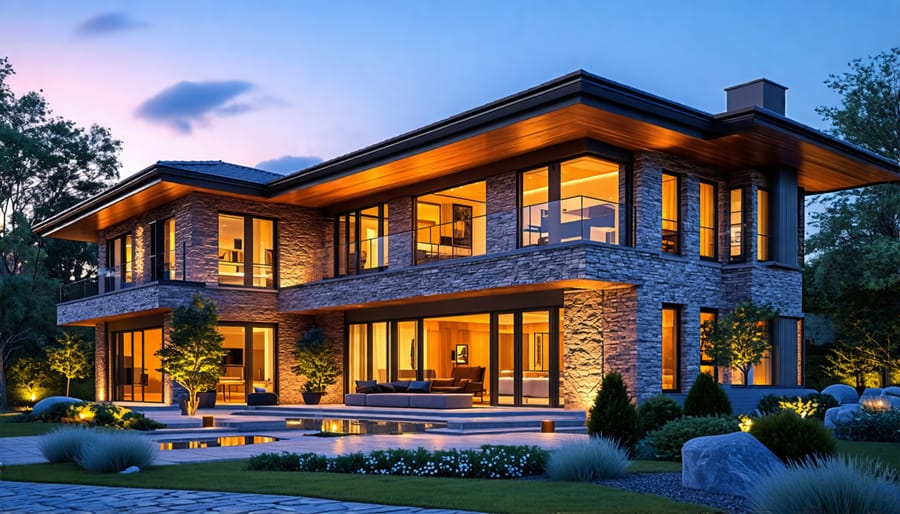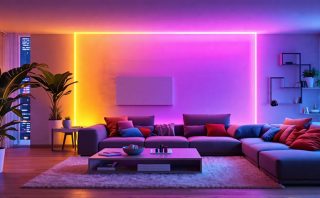Unlock your creative potential and elevate your lighting design skills with online courses tailored to your needs. Whether you’re a beginner seeking to master the fundamentals or a seasoned professional looking to stay ahead of the curve, these virtual learning opportunities offer flexibility, expertise, and hands-on experience. Immerse yourself in a world of cutting-edge techniques, innovative technologies like the LED lighting revolution, and industry best practices, all from the comfort of your own home. With renowned instructors, interactive lessons, and real-world projects, online lighting design courses provide a comprehensive education that empowers you to create stunning, functional, and sustainable lighting solutions. From residential spaces to commercial venues, these programs equip you with the knowledge and confidence to tackle any lighting challenge and make a lasting impact in the field. Embrace the future of lighting education and embark on a transformative journey that will ignite your passion, refine your skills, and open doors to exciting career opportunities in the ever-evolving world of lighting design.
Essential Topics Covered in Online Lighting Design Courses

Fundamentals of Lighting Design
Lighting design fundamentals encompass the essential concepts, terminology, and techniques used to create effective and visually appealing lighting solutions. Key principles include layering light sources, considering color temperature, and understanding the interplay between light and shadow. Ambient, task, and accent lighting work together to create a well-balanced and functional space. Designers must also consider factors such as glare, color rendering, and the psychological impact of lighting on mood and perception. Techniques like highlighting, shadowing, and grazing can be used to emphasize architectural features or create dramatic effects. By mastering these fundamentals, aspiring lighting designers can develop the skills needed to create innovative and impactful lighting designs for a wide range of applications, from residential spaces to commercial environments. Online courses in lighting design provide a comprehensive introduction to these core concepts, empowering students to apply their knowledge in real-world projects and build a strong foundation for their lighting design careers.
Light and Human Psychology
Lighting has a profound impact on human psychology, influencing our moods, productivity, and perception of space. Well-designed lighting can create a comfortable and inviting atmosphere, while poor lighting can lead to eye strain, fatigue, and decreased motivation. Warm, soft lighting tends to promote relaxation and calmness, making it ideal for living rooms and bedrooms. In contrast, cool, bright lighting can enhance alertness and focus, making it suitable for workspaces and study areas. The placement and intensity of light sources also play a crucial role in how we perceive the size and depth of a space. Strategically placed lighting can make a small room feel more expansive or highlight specific architectural features. By understanding the psychological effects of lighting, designers can create environments that not only look visually appealing but also positively impact the well-being and productivity of the occupants. Online lighting design courses delve into these principles, providing students with the knowledge and skills necessary to harness the power of light in their projects.
Lighting for Different Environments
When designing lighting for different environments, it’s crucial to consider the unique needs and goals of each space. In residential settings, lighting should prioritize comfort, functionality, and aesthetics. Focus on creating a warm and inviting atmosphere while providing sufficient illumination for daily tasks. Layering ambient, task, and accent lighting can help achieve a balanced and adaptable design. Consider incorporating smart lighting solutions for added convenience and energy efficiency.
For commercial spaces, such as offices and retail stores, lighting plays a vital role in promoting productivity, safety, and brand identity. Ensure adequate illumination for work areas, while also highlighting key products or displays. Comply with industry standards and regulations for optimal visibility and energy efficiency. In event lighting, the primary goal is to create a memorable and immersive experience. Use lighting to set the mood, direct attention, and enhance the overall theme of the event. Experiment with color, intensity, and placement to create visual interest and guide attendees through the space. Regardless of the environment, always prioritize the well-being and safety of occupants while striving for innovative and impactful lighting design solutions.

Top Online Lighting Design Courses and Programs
DonsBulbs Lighting Design Academy
DonsBulbs Lighting Design Academy offers a comprehensive selection of online lighting design courses, catering to homeowners, interior designers, architects, event planners, and commercial business owners. Our expert-led courses cover a wide range of topics, from the fundamentals of lighting design to advanced techniques for specific applications. With our flexible online format, you can learn at your own pace and access course materials anytime, anywhere.
Our courses are designed to provide you with the knowledge and skills needed to create stunning, functional, and efficient lighting solutions. You’ll learn how to select the right fixtures, optimize light placement, and harness the power of color temperature and dimming to transform any space. Our instructors are industry professionals with years of experience, ready to share their insights and guide you through real-world projects.
What sets DonsBulbs Lighting Design Academy apart is our commitment to personalized learning. We offer one-on-one consultations with our instructors, allowing you to receive tailored feedback and guidance specific to your projects and goals. Our courses also feature exclusive discounts on top-quality lighting products, enabling you to put your newfound knowledge into practice with the best tools available. Whether you’re looking to enhance your home, advance your career, or expand your business offerings, DonsBulbs Lighting Design Academy has the perfect course to help you achieve your lighting design aspirations.
Other Respected Programs
In addition to the previously mentioned programs, there are several other respected online lighting design courses worth considering. The Lighting Design Academy offers a comprehensive Lighting Design Diploma course, covering both theoretical and practical aspects of lighting design. The International Association of Lighting Designers (IALD) provides a series of webinars and online workshops for professionals looking to enhance their skills. Lastly, the Illuminating Engineering Society (IES) offers a variety of online courses and seminars, focusing on specific topics such as lighting controls, energy efficiency, and sustainable design practices. While these programs may differ in their approach and focus, they all provide valuable knowledge and skills for those interested in pursuing a career in lighting design or improving their existing expertise.
Choosing the Right Course for You
When choosing an online lighting design course, consider your individual goals and needs. Are you a beginner looking to learn the basics or an experienced professional seeking to expand your skillset? Look for courses that align with your current knowledge level and desired learning outcomes. Consider the course format, such as self-paced or instructor-led, and choose one that fits your learning style and schedule. Review the course curriculum to ensure it covers the topics you’re interested in, such as residential lighting, commercial lighting, or specialized areas like landscape or architectural lighting. Additionally, research the course provider’s reputation, instructor qualifications, and student reviews to gauge the quality of the program. Don’t forget to factor in the cost and time commitment required to complete the course. By carefully evaluating these aspects, you can select an online lighting design course that best suits your individual goals and helps you achieve your desired outcomes.
Illuminating Career Paths: What’s Next After Your Course
After completing an online lighting design course, a world of exciting career opportunities awaits. Graduates can pursue roles as lighting designers, working independently or with architecture and design firms to create innovative lighting solutions for residential, commercial, and public spaces. They may also find positions as lighting consultants, advising clients on the best energy-efficient lighting options and strategies for their projects.
Event planning and production companies often seek skilled lighting designers to create stunning visual experiences for concerts, weddings, and corporate events. Graduates can also explore opportunities in the entertainment industry, working on lighting design for theater productions, film sets, and television studios.
Retail and manufacturing sectors provide additional career paths, with positions in product development, sales, and marketing for lighting companies. Graduates can use their expertise to create and promote innovative lighting products that meet the evolving needs of consumers and businesses.
For those with an entrepreneurial spirit, starting a lighting design business is another exciting possibility. Graduates can offer their services to homeowners, interior designers, architects, and commercial clients, creating custom lighting plans and installations that showcase their unique style and expertise.
As the demand for energy-efficient and sustainable lighting solutions continues to grow, the future is bright for those with a solid foundation in lighting design. By staying current with industry trends and continuously expanding their skills, graduates of online lighting design courses can build rewarding careers that merge creativity, technical knowledge, and a passion for transforming spaces through the power of light.





